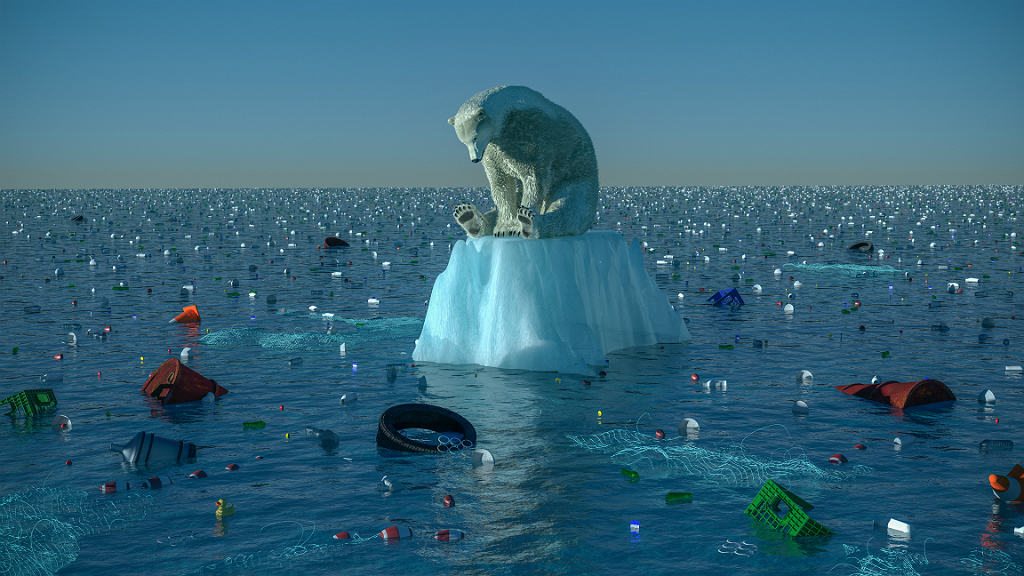A few days ago a radio radio commentator announced this theme as follows: “and now we put aside the theme of politics to talk about the climate change crisis.” This is a true example that we have surely seen reproduced in other fields: the environment and the climate change crisis are issues that mass media generally treat the prevailing economic system as if they had nothing to do with it.
The same occurs with economic issues or other areas of our lives, which are detached from politics, which seems to be the only thing that members of the “political class” that we vote every 4 years do in the institutions. Is the climate crisis an issue that affects the whole of humanity and by which we should set aside each other’s ideology? Is it a matter aside “politics”?
This is not a minor issue, for we internalize that conception of what is and what is not political is the wet dream of capitalism, because it narrows the parameters to the minimum expression of what we can change through collective action and leaves a fertilised field of proposals in a technocratic key.
Let’s focus now on the question that this article has as its heading. What has come to be called a climate emergency is something that we cannot address in a neutral way, regardless of the political interests of each country and social group, as if there were no class differences between those who cause the problem, those who suffer most virulence the consequences and what kind of solution proposals we can address. This shows that only 100 companies are responsible for 71% of total CO2 emissions, or that half of global emissions are emitted only by 10% of the richest people.
We must insist on this issue as the booming mainly youthful climate movement is strained between radical claims (as they go to the root of the problem) and in an anti-capitalist code and, on the other hand, attempts to co-opt by part of the system. Tension that is not new and that has also recently occurred with feminist mobilizations.
Because, following the analogy of feminism, just as practically no one dares to deny the fact that women suffer discrimination for the mere fact of being so, today few deny the evidence of climate change (apart from the bizarre opinions of Donald Trump or Rajoy’s cousin).
Once the diagnosis of the disease has been made, the following is to look for the causes of the problem in order to propose a solution. The political and economic elites have not wanted to remain on the sidelines of this debate and on the contrary they want to be at the forefront of the climate movement.
For the UN it is one of its priorities within the Agenda 2030 for Sustainable Development. Its image is a coloured sphere that you have probably seen in the background in the Council of Ministers or in the lapels of some members of the executive. When it comes to marketing, we already know that the PSOE is always in front.
But going back to the measures that states try to implement to curb environmental degradation, these are framed in what has come to be called “green capitalism”. A recent example is Angela Merkel’s announcement to allocate 54 billion to the green economy or the laws announced by the socialist government in Spain.
These are generally shares that seek to favor the profitability of capital or are simply advertisements. And although some of these measures may represent progress, in no case will they allow a viable long-term solution to the environmental crisis.
As long as an economic system and its totally unsustainable form of production, distribution and consumption, such as capitalism, is not put into question, the contradiction between the (supposed) desire for change of the rulers and the reality that is imposed will continue. A reflection of this are the continuous climate summits that barely manage to wrest compromises from the main polluting powers.
The most important at the moment is the Paris Agreement, whose main objective is to limit the rise in temperature to 2ºC with respect to pre-industrial levels and which will enter into force in 2020 once the Kyoto Protocol expires. The summit that has taken place during these days, convened by the Secretary General of the UN, António Guterres, aimed to evaluate the promises and climate action plans put into practice by governments since the Paris Agreement given the poor development of these. Next year in Glasgow, countries must commit to new measures.
But time is running out and so in the future environmental problems, not just climate change, will get worse. So will migration, conflicts over resources and, hopefully, protests. That is why it is essential to know against whom to direct them and who our allies are in this fight.
In this sense, nobody doubts the determination and honesty of the environmental activist, Greta Thunberg, who has become a world leader. But neither can we be naïve and think that we live in a world where a 15-year-old girl sits in front of the Swedish Parliament and from there, spontaneously, a planetary movement for environmental justice is born. If we go a little deeper we can see how behind them there are businessmen like Ingmar Rentzhog, who has already worked for the Nobel Peace Prize and former vice-president of the United States, Al Gore, who a few years ago became an “activist” against climate change (it can be assumed that the bombs that the US government dropped on Iraq and Yugoslavia during those years were biodegradable and eco-friendly).
Equally shocking is the fact that the Swedish activist travelled to the US on a sailboat owned by Pierre Casiraghi, son of the Princess of Monaco. Neither seems to be particularly committed to the environment and injustices, but rather on the side of those who promote it.
In short, recycling and not wasting water is all very good but the solution does not lie in small individual actions. In the same way that those who have led us to this situation and provoke wars and misery all over the planet cannot be part of the solution either.
Only a movement that questions the foundations of the current system and seeks alternatives that guarantee basic rights for the population as a whole, taking into account the limits of the planet so that this and future generations can continue to live in it, will be able to face one of the greatest challenges facing humanity at this time. Otherwise a black and an uncertain future awaits us.
Stephen Hawking, shortly before he died, predicted that in 100 years human beings would move to another planet. We still have time to change things in this world. The mobilizations of the 27th, if they point to the real enemy of the planet, capitalism, can be a good start.
Translated by: Paola Zabala, from Revolution Forever London.
![]()





